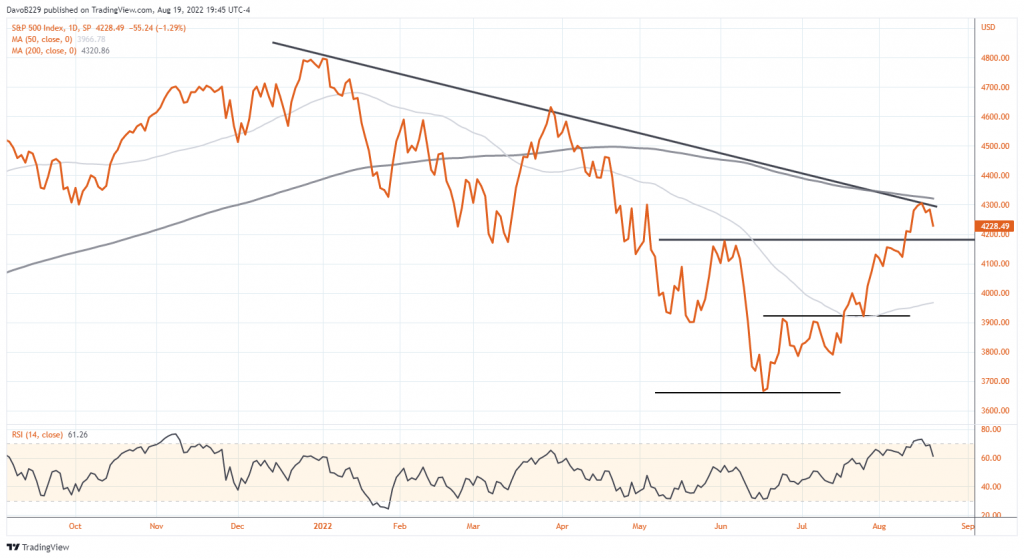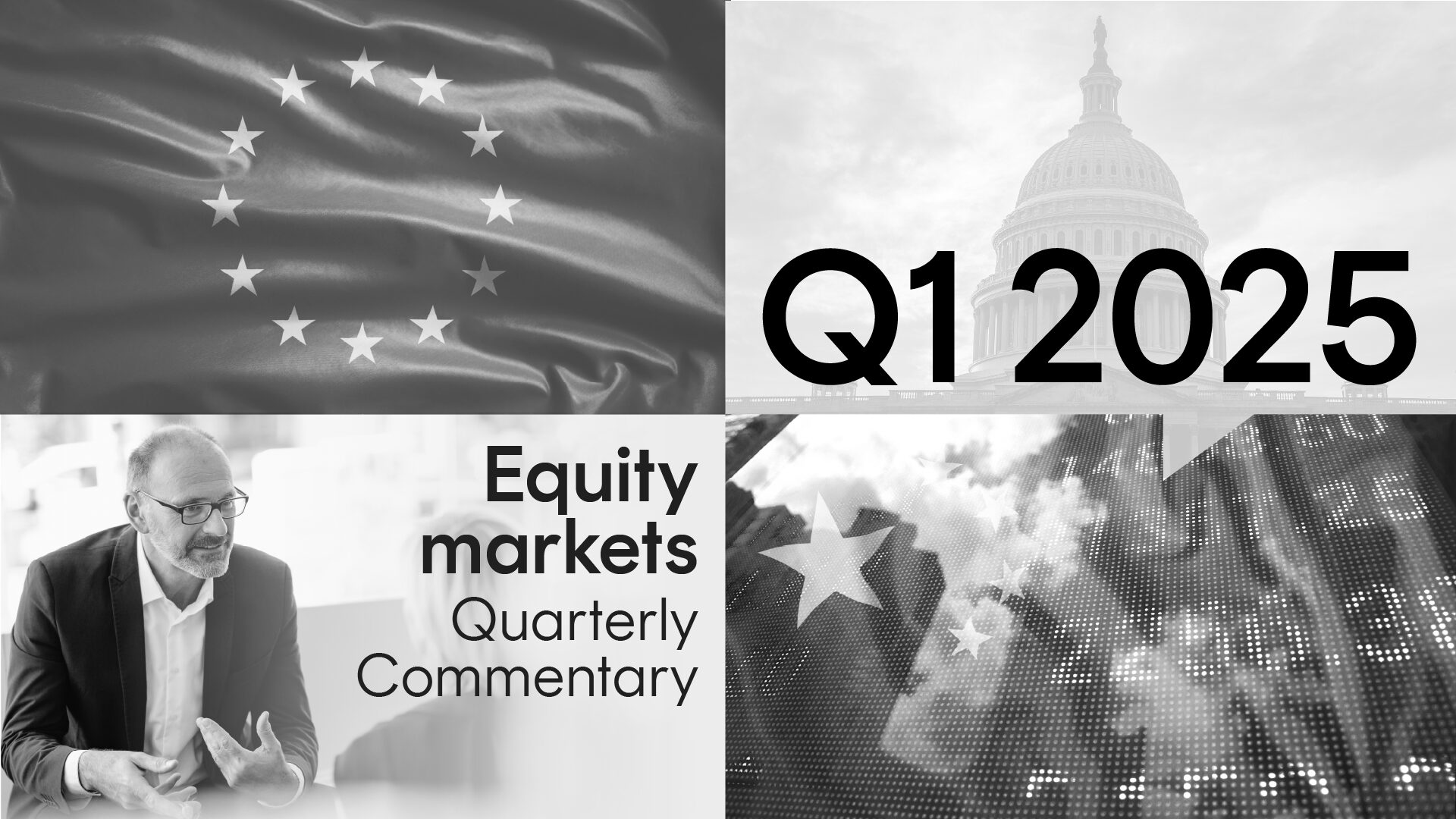Equity Markets Quarterly Commentary Q1 2025
3 minutes reading time
Market update: week in review
After recent solid gains, global stocks suffered a modest setback last week as the combination of increasingly weak US economic data and resolute hawkish commentary from Fed officials started to unnerve investor sentiment.
As evident in the chart below, a range of technical headwinds are not helping. US stocks now appear over bought in at least the short-run, with the daily RSI breaking above 70 mid-week. The S&P 500 is also meeting resistance at the 200-day moving average, along with the downtrend line from the market top earlier this year.
S&P 500 (Daily Chart)
In terms of economic data, a range of US housing indicators are now in steep descent. The New York manufacturing index also slumped in August. Despite this, US 10-year bond yields pushed higher again last week, ending at 2.97% compared with a low of 2.65% in late July. Most Fed officials also spoke of the need to bare down on inflation, even at the risk of recession – they (at least at present) do not seem for turning!
Other global highlights included more weak economic data out of China for August, which in turn prompted its central bank to cut lending rates. In the UK, headline annual inflation broke above 10% – a 40 year high. Meanwhile, Europe continues to ail under the onslaught of higher energy costs as Russia tightens its squeeze on gas supplies.
In Australia, we received mixed economic news with a 40k fall in employment during July, but a further drop in the unemployment rate to 3.4%. Official wage estimates remain the lion that did not roar. Despite all the apparent “business liaison” suggesting to the RBA that wage costs are lurching higher, the wage price index rose a mere 0.7% in the June quarter to be up only 2.6% over the past year.
Minutes from both the Fed and RBA suggested they remain focused on keeping inflation expectations under control as we wait for the post-COVID surge in inflation to subside. My base case is both will raise rates by 0.5% at their September meetings.
Week ahead
The major focus this week will be Fed chair Powell’s end-week speech at the annual central banker gathering at Jackson Hole. With most Fed officials sticking to the hawkish script in recent weeks, markets are nervous that Powell might attempt to quash talk of a “pivot” anytime soon, leaving markets to expect at least a 0.5% – and possibly another 0.75% – rate increase next month. Of course, what he says and how the markets interpret his comments are often two separate beasts. Wall Street may well surge if he merely hints at scaling back the size of rate increases (i.e. from 0.75% back to 0.5%) in coming months.
Other data highlights will provide more evidence on just how quickly the US economy is weakening, with August manufacturing and service sector surveys, weekly jobless claims, homes sales, and consumer sentiment. The data highlight, however, will be Friday’s July private consumption deflator, which is expected to emulate the already released CPI in showing some easing in inflationary pressure, in large part due to lower oil prices.
In Australia there are no major economic data releases, suggesting local market moves will be even more dependant than usual on Wall Street’s gyrations.
Have a great week!
*Note due to technical issues this morning, the usual range of charts and tables could not be provided in this week’s Bites. They should be back next week!



